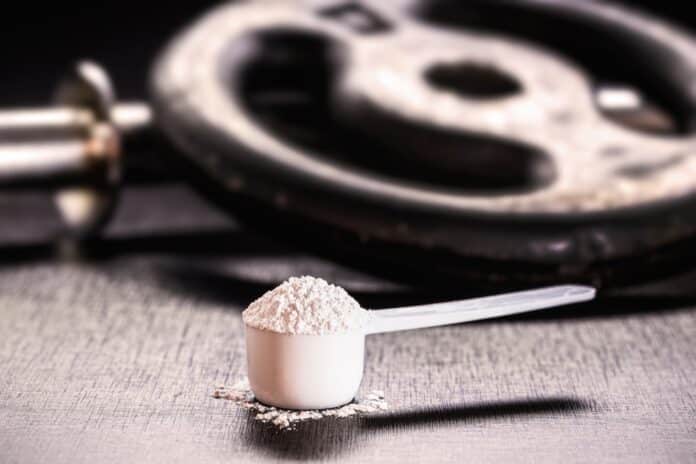
Creatine, whose name comes from the Greek word for “meat,” is a natural substance the body produces to be used as energy during muscle contraction. Roughly half of a person’s creatine comes from meat, while the liver and kidneys manufacture the other half. Your body stores creatine phosphate in the muscles, the brain, and the testes, with 95% of creatine stored in the muscles and the remaining 5% shared between the brain and the testes.
Taking creatine supplements from synthetic creatine might improve your body’s supply of stored phosphocreatine. The latter represents a reserve of energy produced by the body’s cells. Therefore, it helps your body produce high-energy molecules.
An increase in ATP, the body’s ” energy currency, ” leads to enhanced physical performance during workouts. When your creatine levels go up, your energy increases, you gain muscle mass, and you recover quickly.
How Does Creatine Function Within the Body?
There are several ways to ensure increased performance during workouts. For instance, in high-intensity exercises, the main aim of creatine is to increase the phosphocreatine stored within the muscles. Storing this supplement in excess within the body helps it convert to ATP, which you can use as an energy source for heavy lifting and high-intensity workouts.
With regards to building muscles and gaining muscle mass, creatine helps you in the following ways:
- Increased workload: Creatine helps you increase the volume of work done in a single training. An increment in total work is vital to long-term muscle growth.
- Improved cell signaling: Additionally, creatine helps to increase satellite cell signaling, which functions as an aid in repairing muscles, as well as new muscle growth.
- Raised anabolic hormones: Studies have indicated a significant increase in hormones after taking creatine supplements.
- Reduced protein breakdown: Further, creatine supplements aid in increasing total muscle mass by preventing the breakdown of muscles.
- Lower levels of myostatin: Finally, creatine supplements help reduce myostatin’s level within the body, as it has been shown that myostatin can slow or inhibit muscle growth.


















